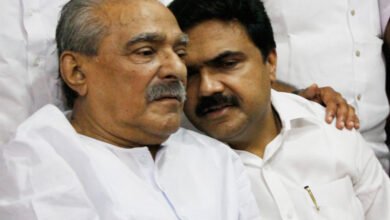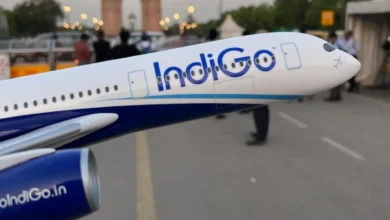
NEW DELHI: As India prepares for a series of events starting Thursday to mark the first death anniversary of Ratan Tata, the nation’s revered industrialist and philanthropist, a dark cloud of discord hangs over his legacy. The very institution he nurtured as the soul of Indian enterprise, the 156-year-old Tata Group, is witnessing an unprecedented and bitter power struggle within its sanctum sanctorum—the Tata Trusts.
Less than a year after the passing of its patriarch, the guardians of the Tata empire are at war. A schism has ripped through the trustees, pitting Chairman Noel Tata against a formidable faction of board members. The conflict, centered on board appointments and fundamental governance principles, has spiraled into a full-blown crisis, so severe that it has warranted the intervention of the highest echelons of the Indian government. For an institution that has long prided itself on stability, consensus, and ethical governance, this public feud is more than just a boardroom battle; it is a deep wound to what many consider the ‘corporate soul of India’.
The Guardians at War: An Anatomy of the Conflict
The current turmoil eclipses even the ugly public spat of 2016 that led to the ouster of former chairman Cyrus Mistry. This time, the fight is among the custodians themselves. On one side stands Noel Tata, Ratan Tata’s half-brother and Chairman of Tata Trusts, supported by veteran industrialist Venu Srinivasan. Opposing them is a powerful bloc led by Mehli Mistry, a once-close associate of Ratan Tata, and includes influential figures like Pramit Jhaveri, Jehangir HC Jehangir, and Darius Khambata.
The immediate flashpoint for this feud is a deadlock over key appointments to the board of Tata Sons, the group’s holding company in which Tata Trusts holds a commanding 66% stake. The Mistry-led faction ignited the conflict by rejecting a resolution to re-appoint Vijay Singh, a 77-year-old former defense secretary, as a nominee director on the Tata Sons board. This move was technically grounded in a new policy, ironically introduced after Ratan Tata’s death, which mandates annual re-appointments for nominee directors past the age of 75. Faced with staunch opposition, Singh ultimately resigned voluntarily, but the battle lines were drawn.
In a retaliatory move, when the Mistry faction sought to nominate Mehli Mistry to the Tata Sons board, the proposal was vehemently opposed and blocked by Noel Tata and Venu Srinivasan. This tit-for-tat has created a dangerous stalemate.
The depth of the crisis is further underscored by the Mistry camp’s reported rejection of all three high-profile candidates proposed by Chairman Noel Tata for the Tata Sons board. The rejected nominees—celebrated lawyer Behram Vakil, Tata Steel’s successful Managing Director TV Narendran, and banking titan Uday Kotak—are all luminaries in their fields. Their rejection signals that the opposition is not merely procedural but a fundamental challenge to the Chairman’s authority. This gridlock has left three crucial vacancies on the Tata Sons board, following the recent retirements of Ralph Speth (former JLR chief), Ajay Piramal, and Leo Puri, effectively stalling strategic decision-making at the apex of the ₹15.24 lakh crore conglomerate.
The Mehli Mistry Factor: A Story of Loyalty and Alleged Betrayal
At the heart of this conflict is the enigmatic figure of Mehli Mistry. His position is layered with historical irony. Despite being a part of the larger Shapoorji Pallonji family—which owns an 18.37% stake in Tata Sons and has had a historically contentious relationship with the Tatas—Mehli Mistry was a fierce loyalist of Ratan Tata. He famously sided with Ratan Tata against his own cousin, Cyrus Mistry, during the acrimonious 2016 leadership battle.
This history makes his current opposition to the Trust’s leadership deeply significant. Reports suggest that Mehli Mistry feels marginalized and excluded from key decision-making processes since Noel Tata assumed the chairmanship. His faction’s actions are being interpreted as a move to reassert influence and prevent a consolidation of power under the new chairman, transforming a governance debate into a deeply personal power struggle.
A Parallel Crisis: The Shapoorji Pallonji Conundrum
Running parallel to the internal feud is the unresolved, high-stakes issue with the Shapoorji Pallonji (SP) Group. The cash-strapped SP Group is under immense financial pressure, having recently refinanced nearly ₹30,000 crore of debt at an astronomical interest rate close to 20%. For them, liquidating a portion of their valuable stake in Tata Sons is not just an option but a financial necessity.
Their hopes were pinned on a Reserve Bank of India (RBI) mandate that required Tata Sons to be listed as an upper-layer core investment company (CIC), a move that would have allowed the SP Group to sell its shares on the open market. However, with the September 30 deadline now passed and the Tata Group remaining staunchly opposed to listing its holding company, the SP Group is in a precarious position.
A potential truce is now being discussed, involving a settlement where Tata Group entities would buy a part of the SP Group’s stake. This would provide the SP Group with much-needed liquidity without forcing a public listing—a compromise both sides might reluctantly agree to. All eyes are now on the upcoming Tata Trusts board meeting on October 10, where this critical issue is expected to be a central point of discussion.
A National Concern: When Government Is Forced to Intervene
The escalating infighting has sent shockwaves through India Inc. RPG Enterprises Chairman Harsh Goenka articulated this widespread anxiety in an October 6 tweet: “The Tatas are an institution that defines India’s corporate soul. Any internal discord hurts Brand India itself. The government should immediately intervene and support the Tata family restore harmony and ensure the Trusts continue their extraordinary work.”
His call for intervention proved prescient. In an unprecedented move, Union Home Minister Amit Shah recently met with the trustees, urging them to resolve their differences in the ‘Tata way’—through quiet consensus rather than public brawls. He advised them to avoid any adverse fallout from the rift on the operations of Tata Sons. The very fact that the trustees of the nation’s most respected business group had to seek government mediation is seen as a significant embarrassment and a stain on its pristine reputation. Reports also indicate the government’s displeasure with the attempts by four trustees to undermine Chairman Noel Tata’s authority, viewing it as a destabilizing power grab.
The Rust Within: A Legacy at a Crossroads
It is a profound tragedy that less than a year after his passing, the house that Ratan Tata so meticulously built and protected is facing its gravest threat from within. His entire life was a testament to quiet strength, ethical leadership, and the power of consensus. The current spectacle of public discord is a direct repudiation of those values.
One of Ratan Tata’s own quotes now seems chillingly prophetic: “None can destroy iron, but its own rust can.” For the sake of the 156-year-old institution and the interests of its millions of stakeholders, the guardians of the Tata legacy must find a way to cleanse this rust. The upcoming board meeting is not just another corporate gathering; it is a moment of reckoning that will determine whether the Tata Group can heal itself and move forward united, or whether the cracks in its foundation will deepen, forever tarnishing the legacy of the man who was its moral compass.







